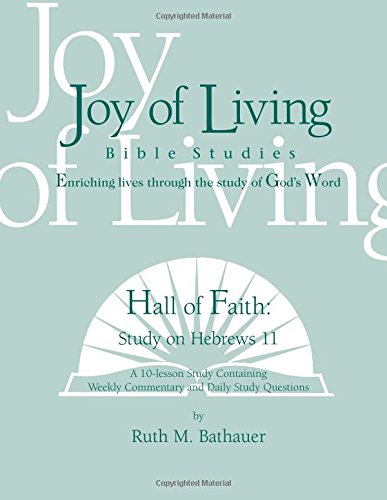Click here to return to Blog Post Intro
Unlikely Heroes: Ordinary People with Extraordinary Faith by Daniel Lockwood

Enoch: The Unlikely Pilgrim
We know little about Enoch’s spiritual successes. There is no record of a stunning victory over a devastating spiritual crisis, just as there is no mention of remarkable acts of spiritual courage or faithfulness. On the other hand, we learn of no personal angst, no bitter failure, no depressing brokenness.
While he appears in the pages of Scripture as a genealogical statistic, he will always be known for one important thing: he took a surprising stroll with the living God.
Enoch’s Profile: A Biblical Sketch
Genesis 5 details a genealogy with ten patriarchal entries, tracing Adam’s ancestral line to Noah’s three sons: Shem, Ham, and Japeth. The phrase “and he died” is repeated eight times, fulfilling the promise God made to Adam the day he ate of the forbidden fruit. The genealogy follows this pattern:
- Everyone sins.
- The wages of sin is death.
- Everyone dies.
When Enoch’s name appears in the genealogy, we find a break from the formula. After he became the father of Methuselah (who lived 969 years—the longest recorded life in the Bible), Enoch “walked with God” three hundred years (Genesis 5:22), something not said of the others. And then the text takes a surprising turn: “Enoch walked with God, and he was not, for God took him” (Genesis 5:24).
His Faithful Walk
Enoch is a man known for one thing and one thing only: he walks with God. That’s the sum and substance of his legacy. Hebrews 11:5 tells us, “He was commended as having pleased God.” The word “walking” is frequently used in Scripture to describe our spiritual lives. It is an appropriate metaphor because walking is a step-by-step experience, the way we must live as Christians. The Christian life is not a leap-by-leap lurch; it’s a daily, consistent, continuous, and intimate relationship with our creator God.
When Enoch walks with God, we are reminded of God’s regular walk with Adam and Eve. God desires to walk with Enoch, like he does with the first couple. The difference is that Enoch keeps the appointment. And what a difference it is!
Enoch lived an entire lengthy life with spiritual consistency. Lockwood explains, “My greatest spiritual challenge is rarely adversity. Usually it is consistency in…
- Studying God’s Word when my schedule is relentless.
- Prayer when I feel emotionally or spiritually drained.
- Outreach when I’m fed up ‘to here’ with people.
- Giving when the needs seem endless and my resources stretch thin.”
Enoch shows that living by faith involves a daily, continuous walk with God and begs the question, “Is our faith in God steady enough?”
God’s Hall of Faith Speaks Today (Hebrews 11) by J. David Eshleman

Walking with God
Faith is the key to walking with God. We cannot separate biblical faith with obedience to God.

God wants our fellowship. He wants to speak to us and wants to hear from us. Dallas Willard once explained, “Learning to hear God is much more about becoming comfortable in a continuing conversations and learning to constantly lean on the goodness and love of God, than it is about turning God into an ATM for advice or treating the Bible as a crystal ball.”

Unless we are still, calm down, and meditate, we will not be aware of God’s calming presence. As Oswald Chambers noted in My Utmost for His Highest, “God is not going to tell you what he is going to do—He reveals to you who he is.”
SUMMARY OF WALKING WITH GOD
1. The Bible is our roadmap—our foundation for walking with God.

2. See God in creation.

3. See God in your circumstances.

4. Walk with God in the power of His Holy Spirit.

5. Keep in step with the Spirit.

There is a difference between walking with God and working for God. Consider a marriage relationship. Working for or serving your wife is one level of commitment. Walking with her, that is knowing her heart at a much deeper level. You can buy everything you can possibly think of for her, but she wants more. She wants your heart. The same is true with your relationship with God.
Working for God is easier than walking with God. Many work for God, few work with God or walk with God in a loving friend relationship. We get tired and worn out when we work for God. It’s easy to confuse religious activity for spiritual fellowship. God is with us, in us, walking beside us. It’s helpful that we see ourselves with (side by side) more than working for God.
Walking with God, you will change your world. Walking with God, He will transform you. He will use you to change your peers at work.
Joy of Living Bible Studies – Hall of Faith: Study on Hebrews 11 by Ruth M. Bathauer

There are very few details or even references to Enoch in the Bible.
A beautiful summary of his biography is recorded in Genesis 5:24: “Enoch walked with God.” A little girl once explained this verse. She said that Enoch and God were walking and talking one day. They had such a good time together they just walked and walked. Suddenly, they realized how far they were from Enoch’s home. The little girl ended her story by saying, “So God told Enoch, ‘It’s too far back to your house. You will have to come home with Me.’ And Enoch did.”
Whether we hear Enoch’s life story from the Bible or paraphrased in the words of a trusting child, his life could be described as a beautiful life of faith.
Though he lived at a time when sin and corruption were everywhere, the distinguishing fact of Enoch’s life was that he “walked with God” and was known as a man who pleased God. If Enoch could resist the temptations of his day and keep his eyes focused by faith on God, we should also be able to trust the Lord, for we have the power of the Holy Spirit within us.

Faith for Life: Inspiration from the Ordinary Heroes of Hebrews 11 by Richard Coekin

Of the very little we know about Enoch, twice in Genesis 5 it says that “Enoch walked faithfully with God” (verses 22 & 24), followed by “then he was no more, because God took him away.”
Let’s return to Genesis 3. After their catastrophic rebellion in the Garden of Eden, Adam and Eve “heard the sound of the Lord God as he was walking in the garden in the cool of the day.” The biblical idea of “walking” with someone is the idea of intimate friendship and fellowship.
The living Lord God, Creator of the universe, granted his people the privilege of walking with him in paradise to talk intimately together!
But having rebelled by doubting and disobeying God’s word, Adam and Eve were rightly afraid of God and hid from him. Yet by faith, Enoch chose to be different and walked with God—and indeed is still walking with God in heaven! Enoch didn’t want to just know about God; he wanted to walk with God! What an example for us to follow.
Hebrews 11 is not admiring Enoch; the author is reminding his readers, including us, that, by faith, we all walk with God. The prophet Micah asks, “And what does the Lord require of you? To act justly and to love mercy and to walk humbly with your God” (Micah 6:8).
When the author of Hebrews says, “He could not be found, because God had taken him away”, he is reminding his readers that Enoch was taken to be with God without dying (like the prophet Elijah after him) because he’d so pleased God by his faith. So while we can expect to die normally, what an encouragement to know that God delights in our faith when we “walk in the light” (1 John 1:7) and “[walk] in the truth” (3 John 4) of the gospel, in the intimate love of God.
A Great Cloud of Witnesses: A Study of Those Who Lived by Faith by Trillia Newbell

Enoch is noted to have walked with God, but God doesn’t spell out what he did or how he did it. We know that walking with God means a deep and abiding relationship.
We can have such a relationship too. By God’s grace, we can walk with an understanding of right and wrong (just living) and act in a way that loves our neighbor.
To walk with God could simply be summed up as to enjoy a relationship with Him. It’s in this relationship with God that we see the outward doing. It’s an outward response to the ongoing relationship with the Lord that we all long to have. And at the end of our days, we too hope to be ones who are remembered to have walked with God.

